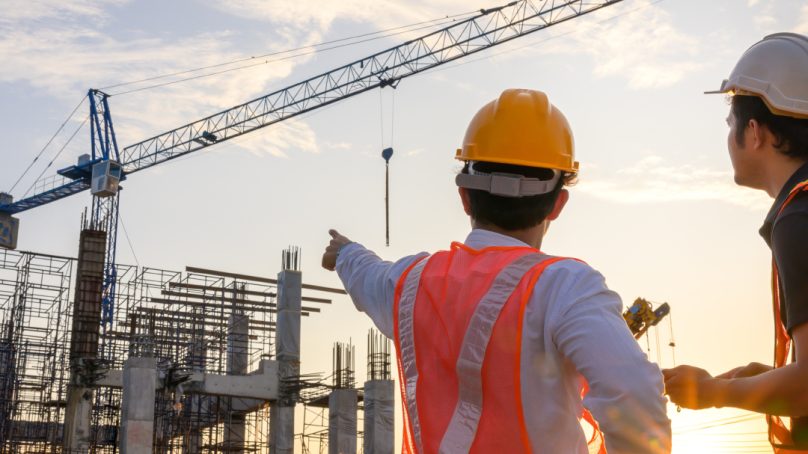
While the global hospitality industry continues to recover from pandemic lows and tackle the macroeconomic headwinds of a possible recession and record inflation, the spotlight for opportunity in the sector undoubtedly falls on the GCC. Fast-growing economies, favorable business climates and ever-increasing tourism inflows have transformed the region into fertile ground for hospitality investment in recent years. The region has carved a niche as a major hotel investment hotspot in recent decades, successfully attracting the attention of the world’s biggest international hotel chains.
STR records indicate there are 1,009 branded properties with 246,057 rooms located across the six GCC countries. The branded pipeline numbers are also impressive, signaling that there are many more hotels to come. Currently, a total of 447 hotels and 115,504 rooms are under contract in various phases of development.
GCC visitor numbers outpacing global averages The GCC has certainly made a name
for itself in recent years as a global tourist destination. From the imposing skyscrapers of Dubai to the pristine beaches of Oman, the region has become a major destination for travelers seeking world-class tourism experiences. According to UNWTO data, international tourist arrivals in the Middle East reached 83 percent of their pre pandemic levels in 2022, marking the strongest relative recovery of all regions and well above the global average of 63 percent of 2019 visitor numbers. The return of tourism demand has been partly driven by successful mega events, like the second half of Expo 2020 in Dubai and the 2022 FIFA World Cup in Qatar. The numbers are certainly impressive, with over 24 million visits made to Expo 2020 and over 1.4 million football fans traveling to Qatar for the sports tournament.
Dubai’s success story
Dubai has long been a bright spot for GCC tourism, supported by its status as the first destination to come to prominence, and remains a shining example of how visionary leadership has successfully transformed a city into a leading destination. Growth rates have been phenomenal, with the number of hotel rooms rising from 67,675 in 2009 to 146,980 in 2023. Today, the city is home to some of the world’s most luxurious hotels and resorts, including the Burj Al Arab and the Bulgari Resort Dubai. New flagship projects, such as the recently opened Atlantis The Royal, are helping the emirate to maintain its position as a top global tourism destination. Dubai is not standing still either; an additional 95 hotel projects with 27,095 rooms are currently under contract, signaling the emirate’s ambitious vision and expansion plans.
Saudi Arabia’s tourism transformation
Neighboring Saudi Arabia is also investing heavily in tourism infrastructure, creating new opportunities for hotel investment. The pipeline of mega and giga projects currently under development, which include the Red Sea Project, Neom, AlUla, Amaala and Diriyah Gate, are expected to completely transform the country’s tourism industry. Tourism
has been identified in the Kingdom’s Vision 2030 strategic framework as one of the key pillars of economic growth and this, in turn, has unlocked vast investment opportunities. Hotel investment is booming, as evidenced
by the current pipeline, which extends to 313 new hotel projects, representing 100,071 rooms. The government has played a key role in adapting legislation to create a more business-friendly environment, which has helped to boost inflows in recent years. Investors will also be eyeing the forthcoming Future Investment Initiative conference, which takes place in October under the banner “The New Compass.” Now in its seventh edition, this key event was the forum chosen in 2017 for announcing the Neom giga project. Over the years, the conference has become a leading platform for dialogue and collaboration between global investors and Saudi Arabia’s business and political leaders. Investment-led tourism growth is now materializing after years of planning and construction. The first passengers look set to arrive at the Red Sea international airport later in 2023, a 100 percent renewable-energy-powered facility for the giga project. To date, 13 out of a total 16 planned hotel projects have been announced, with flagship luxury brands from the world’s biggest hotel operators featuring strongly. Among the first hotels opening later in 2023 will be the Six Senses Southern Dunes Resort and St Regis Red Sea Resort. Neom, meanwhile, is expected to follow in 2025, with large-scale construction already underway to meet the tight deadline. In separate developments, three Marriott hotels are expected to open from 2024 onwards on Sindalah Island, just off the coast of Neom.
Resilience a regional industry hallmark
Overall, the GCC hotel industry remains highly attractive for investors and developers looking to capitalize on the region’s growing economy, business-friendly environment and booming tourism sector. In a robust display of resilience, the sector has bounced back with record-breaking numbers of tourists and visitors for several high-profile, successful events. With a pipeline of new hotel projects fueled by significant investment in the sector, the GCC is set for continued growth in the years to come. Dubai continues to lead the way, having firmly established itself as the key regional metropolis with its vibrant hotel sector, but other countries in the region, notably Saudi Arabia, are close behind, rapidly transforming their tourism offerings through ambitious, large-scale projects.

Kostas Nicolaidis
Middle East & Africa Executive
STR
















